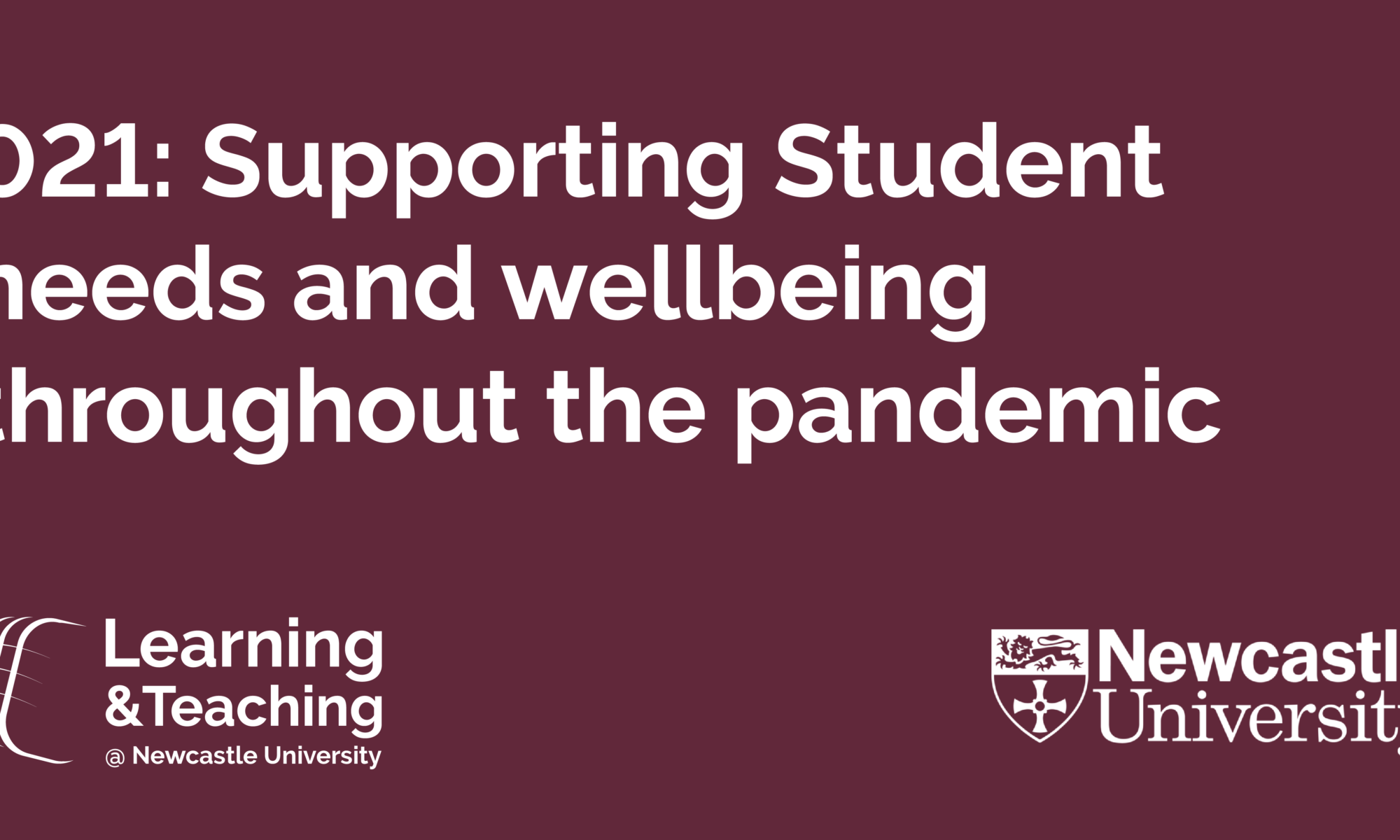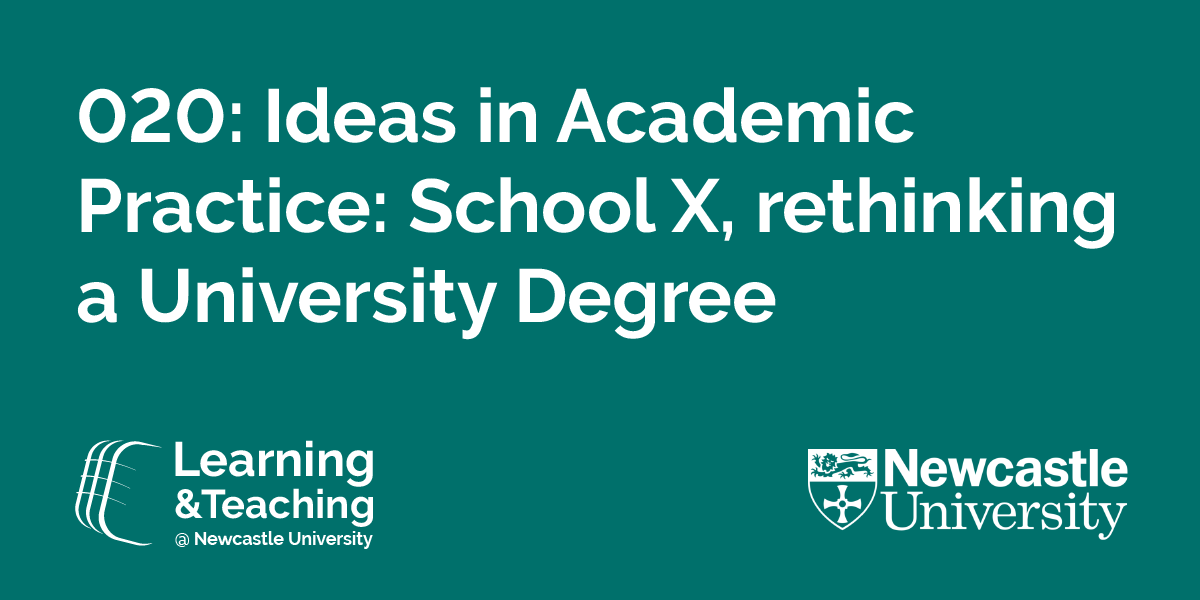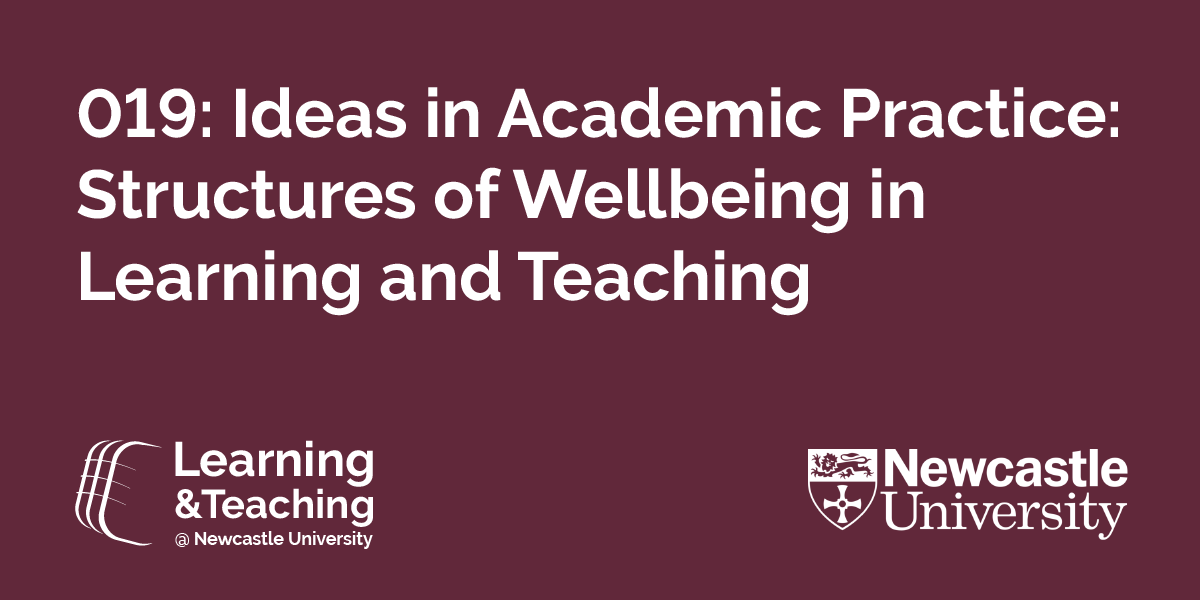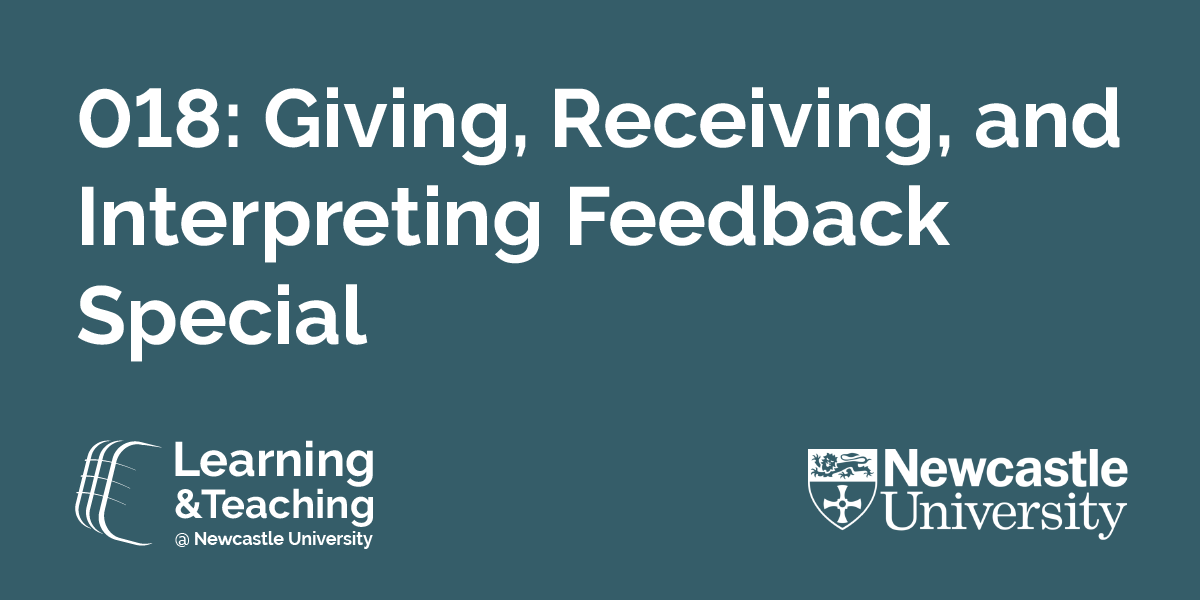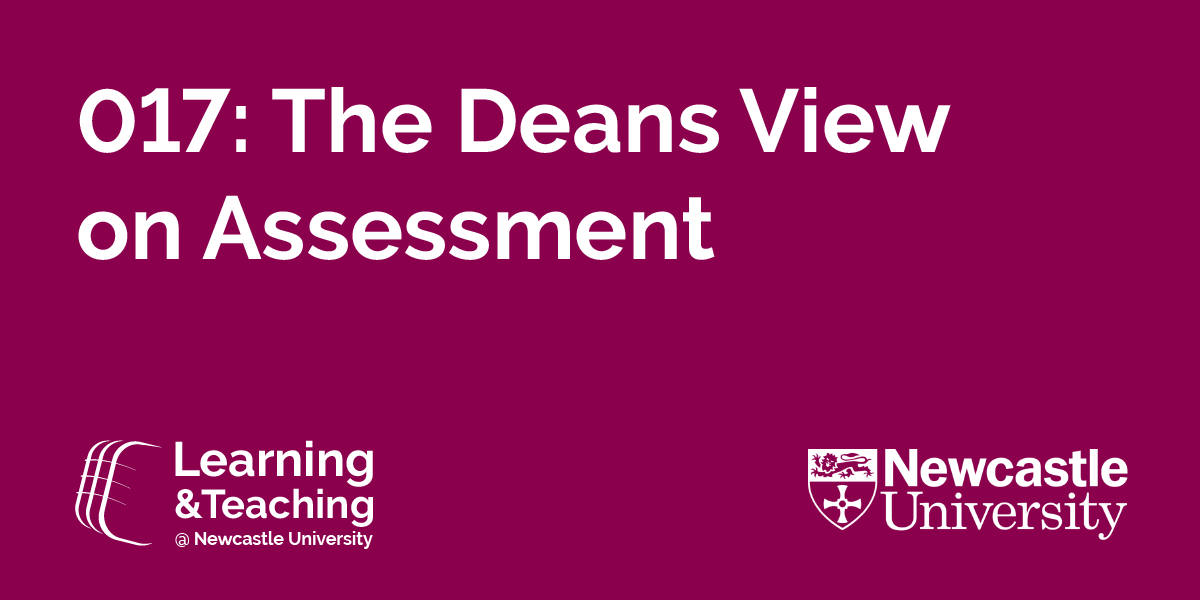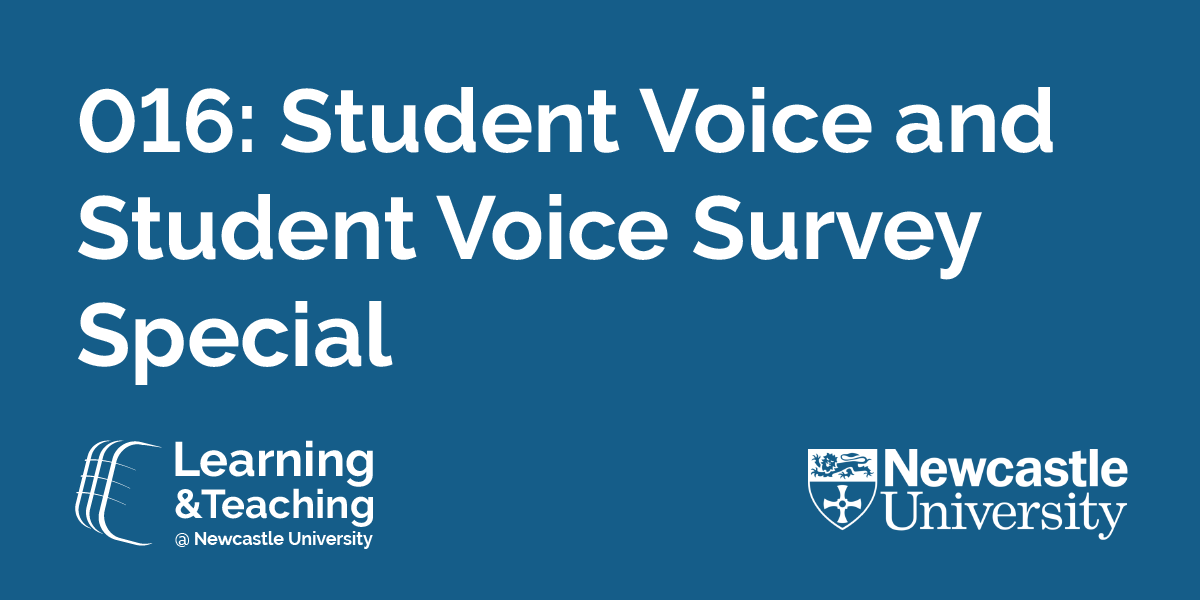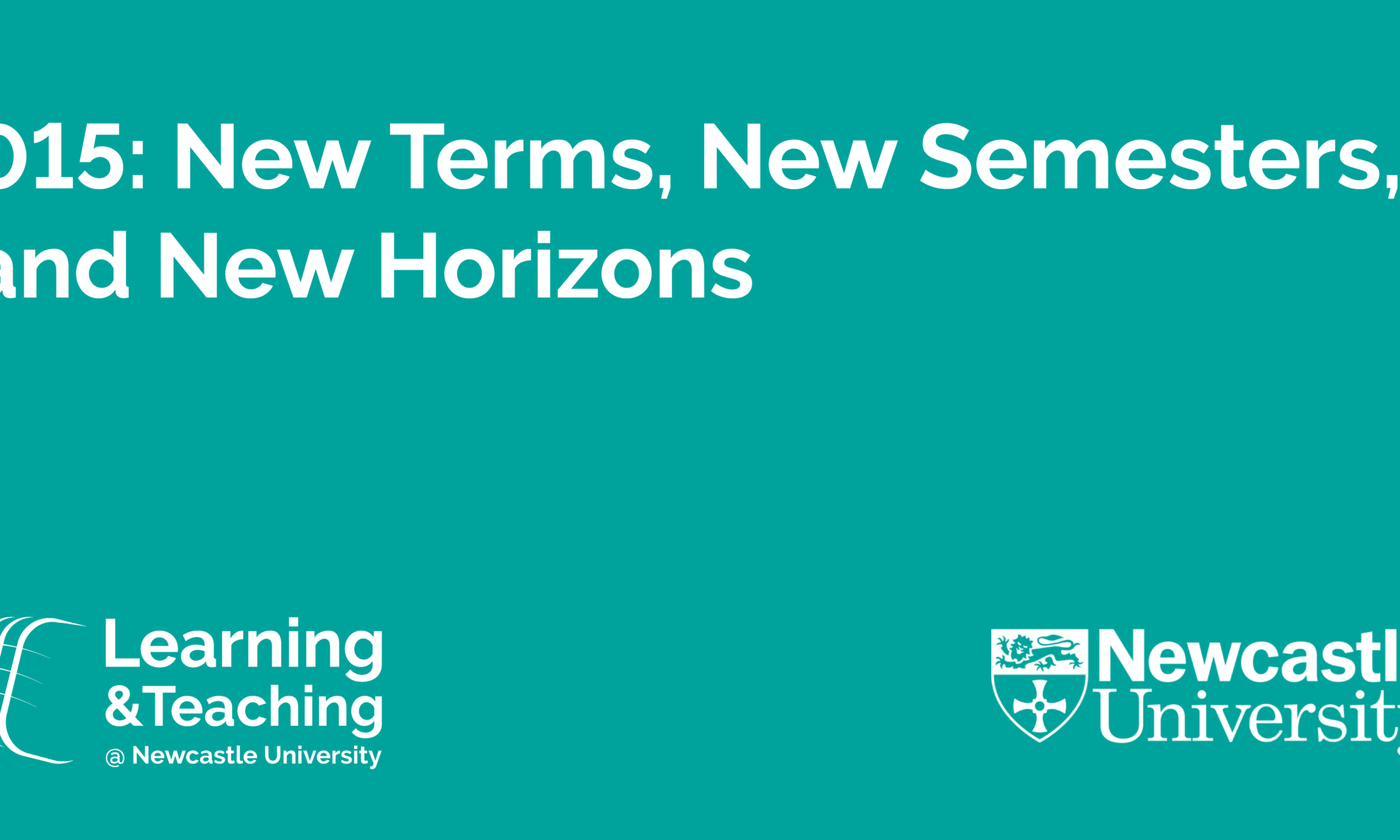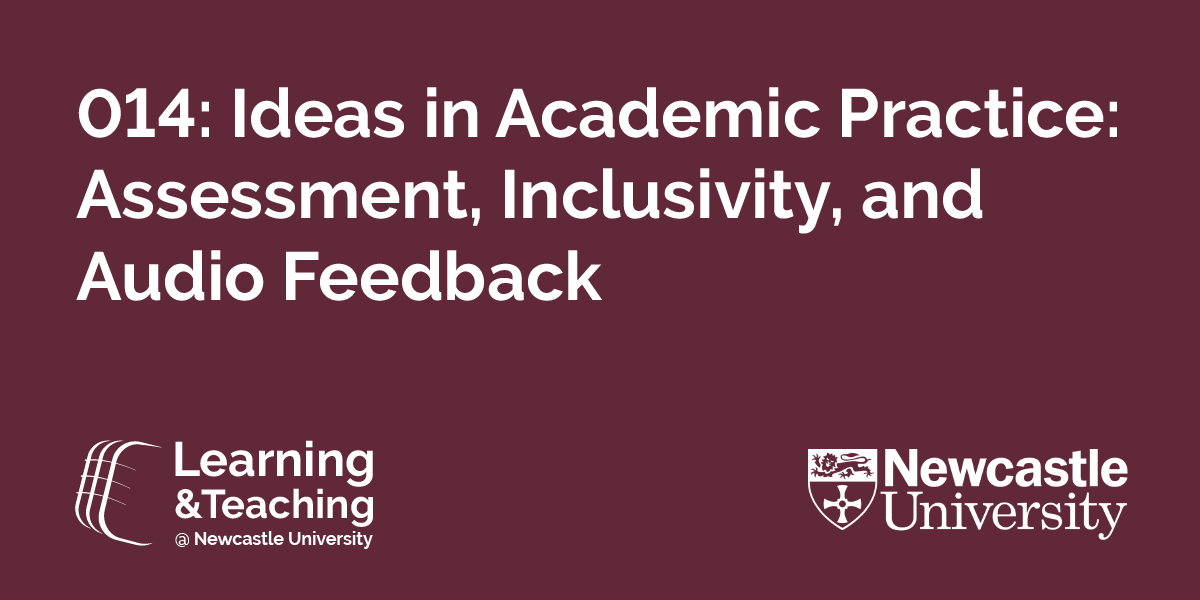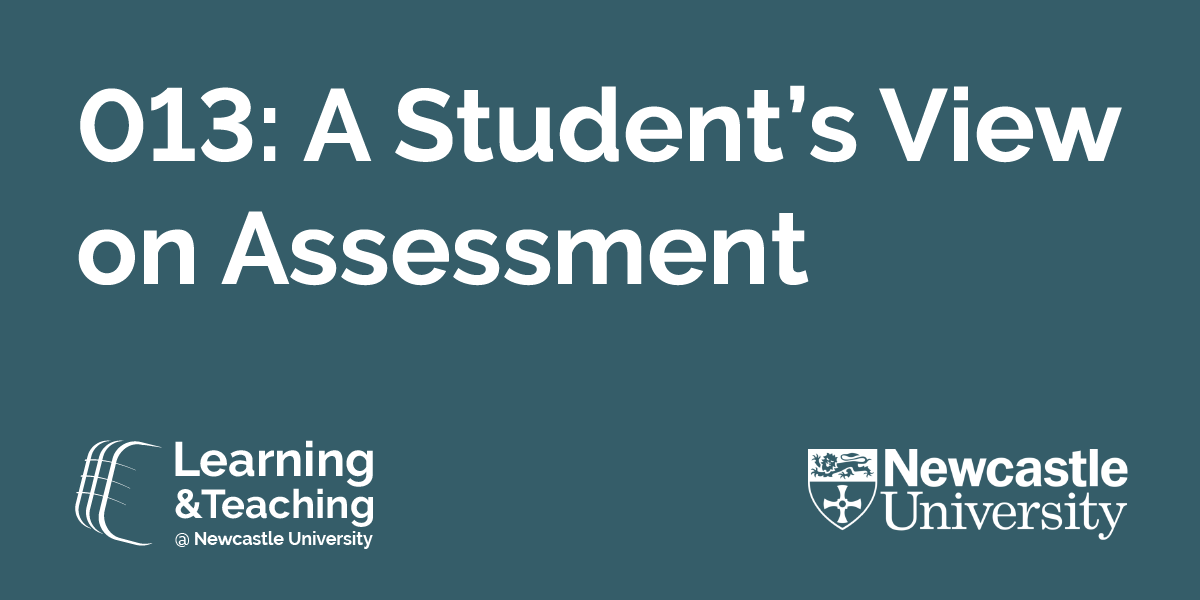Podcast: Play in new window | Download
Listen and Subscribe Apple Podcasts | Spotify | RSS
Hello and welcome to episode 21 of the Learning & Teaching @ Newcastle University podcast.
Transcript available
Here at Newcastle University, we are committed to providing a friendly and accessible service for students with additional learning needs, disabilities or conditions, so that they may study effectively and make full use of the opportunities available to them.
The Student Health and Wellbeing Service work with different schools within the university to support students throughout their time at Newcastle and engage them as a partner in their learning. As part of their learning partnership, they will need to participate in the support that is offered to them to make it work. In particular, if they feel that their support requirements change at any time, then it is important that they let us know so that our provision can be reviewed to meet their needs. The Student Health and Wellbeing Service also liaise with academic Schools over students’ support requirements and external agencies where appropriate.
In this episode, we talk to Sandy Alden, team leader within the University’s Disability and Specialist Learning team and Dr Luisa Wakeling, a Senior Lecturer at the School of Dental Sciences, to explore how the university adapted to teaching students with additional learning support, disabilities, or conditions at the start and throughout the pandemic, and we talk about the what the future of learning looks like.
In the first section, Sandy discusses what the Student Health and Wellbeing Service team did at the start of the pandemic to ensure all students were supported through the switch to online learning. Luisa also gives us a point of view from an academic about how she adapted her teaching style to meet the needs of all her students.
In the second section, both Sandy and Luisa talk about adapting to life back on campus after a long period of online teaching. They talk about the provisions they put into place during lockdown and discover what proved useful for students who require additional support.
In the final section of the episode, Sandy and Luisa talk about the benefits that came from online teaching, looking at what measures worked well and how they can be used going forward.
If you would like to get in touch or have an idea you would like to share, please email ltds@ncl.ac.uk and use the title ‘Learning & Teaching @ Newcastle University Podcast idea’.
References:
https://www.ncl.ac.uk/wellbeing/
https://www.ncl.ac.uk/wellbeing/physicalwellbeing/
https://www.ncl.ac.uk/wellbeing/mentalwellbeing/#counsellingteam
https://www.ncl.ac.uk/wellbeing/supportservices/disabilitysupport/#overview
https://www.ncl.ac.uk/elll/students/student-support/personal-extenuating-circumstances/
https://www.nusu.co.uk/support/sac/
https://www.nusu.co.uk/support/welfare/
https://www.ncl.ac.uk/study/student-life/support-wellbeing/
https://www.ncl.ac.uk/academic-skills-kit/assessment/
https://www.qaa.ac.uk/docs/qaa/guidance/building-a-taxonomy-for-digital-learning.pdf

